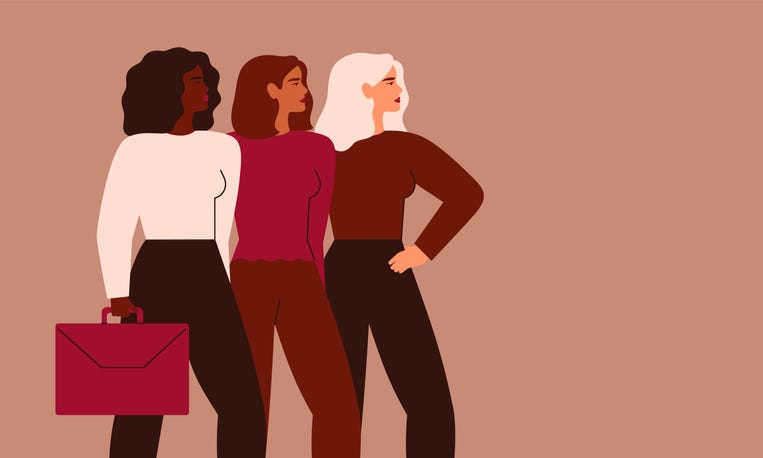
A new poll shows more than half of American adults believe the country would be better off if more women were in charge.
According to a Gallup poll released on International Women's Day, 57% believe the country would be governed better if more women were in political office. That's compared to 22% who think it would be governed worse, and 21% who think it would make no difference.
While women's representation in government falls far short of their roughly 50% share of the US adult population, it is at record highs across most levels of government, Gallup noted.
Women currently represent between a quarter and a third of elected leaders at all levels of government -- including 29% in the House of Representatives, 25% in the Senate, 24% of state governors, 33% of state legislators, 34% of large-city mayors and 32% of municipal officeholders, according to the poll. Additionally, four of the nine Supreme Court justices are women and Kamala Harris is serving as the nation's first female vice president.
Since Gallup first began tracking views on women in political office in 1999, women have consistently exceeded men in believing the country would benefit from having more women in office, but the gender gap has increased.
"Women have become slightly more positive about women's influence, while men have become less so," Gallup noted.
In 1999, 62% of women versus 51% of men thought the country would be better off with more women officeholders -- an 11-point difference -- compared to 68% of women versus 41% of men today -- a 22-point difference, according to the data.
Among party lines, Democrats are substantially more likely to think the country would be better off with more women in office -- rising from 66% in 1999 to 84% today. Republicans, on the other hand, are less convinced -- dropping from 47% in 1999 to 32% today.
The poll suggested several events that could explain why Democrats have grown more likely to see women in politics as a benefit, while Republicans have become skeptical, including: Hillary Clinton's candidacy as the 2016 Democratic presidential nominee; a large number of Democratic women elected to Congress for the first time in 2018 in what was billed as the Year of the Woman; and Nancy Pelosi's return as U.S. House speaker in 2019.
Gallup says the data shows that women have a long way to go to maximize their representation at all levels of government, and that it will take more women candidates from both parties to get there.
"As it stands, rank-and-file Democrats largely champion more women in office, while Republicans have become skeptical," the poll noted. "That doesn't necessarily mean Republicans won't vote for female Republican candidates. But if 'women' are now synonymous with 'Democrats' in Republicans' minds, it could hinder electoral opportunities for Republican women in subtle ways."
